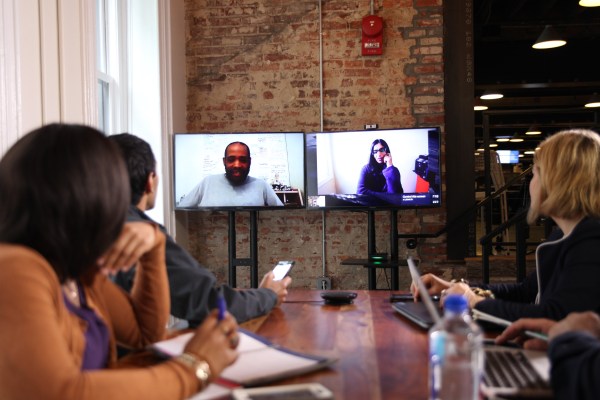For those who think that Google Hangouts, Slack or Skype aren’t enough to meet their business needs, please allow me to introduce you to Pluot.
The company just raised $2.5 million from a slew of investors, including TenOneTen Ventures, Root Ventures, Metamorphic Ventures, Haystack and Gokul Rajaram.
Founded by Kwindla Kramer and Doug Brunton, Pluot combines a hardware and software system to give small businesses access to the same quality of video-conferencing services that companies could expect to see in the boardrooms of Fortune 500 companies, according to the founders.
The service is accessible via desktop or mobile, and in a conference room, companies can install Pluot hardware (it’s free!) to start video chat-chat-chatting their way through the day.
Pluot (a YC alum) began with the notion that Kramer and Brunton had about the growth of distributed teams in the tech world.
As more employees began working from home (or cafes, bars or restaurants) the need for face-time became more pressing and the demand for remote services that could provide conferencing became more urgent.
Both men had previously worked at video-conferencing companies and knew the market intimately. Using some fairly off-the-shelf components (thanks to the significant drop in pricing for cameras, speakers and compute power), the company was able to build a device that it could give away for free and sell its services for just $50 per month.
The two men have known each other for nearly 20 years, working on an open-source project for AllAfrica.com in the early part of the new millennium. Then they built the first major online presence for the Democratic National Committee.
Kramer went on to launch Oblong Industries, which developed gestural recognition and video-conferencing technologies. It was, in fact, Kramer’s experience at Oblong that convinced the two to launch Pluot.
Both men believe that the popularity of distributed workplaces will only continue to grow, and estimate that roughly 100 million rooms could be equipped with video conferencing and screen-sharing equipment.
